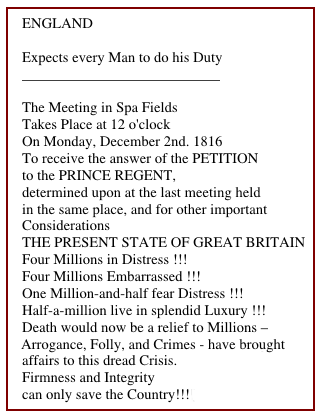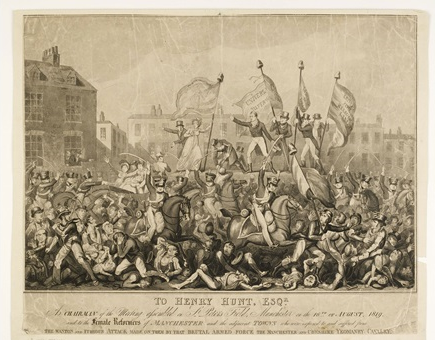Historic lessons on the potential impact of BREXIT and economic sanctions
Hector McNeill1
SEEL
The current discussions within the UK concerning BREXIT and the international situation concerning sanctions avoid any concentration of minds on the impacts of the results of interventions that distort free market operations.
Those who will be prejudiced in the short to medium terms by BREXIT and any other forms of tariffs or sanction impositions will be the lowest income segments. This fact is not fully acknowledged in terms of the likely impacts amongst the UK's prospects in terms of BREXIT and for the future security of a world exposed to sanctions. In the UK, in particular, the failure of MPs to recognise that after a decade of falling real incomes in the lowest income segments and the growth in food banks, it is self-evident that the lowest income segments will be impacted by any form of transition.
On the sanctions front there is very little to commend policies which, in essence, are the imposition of extreme tariffs or debarring the use of the international financial system (dollar-based) to prevent international transactions by specific countries. Here those who pay are those with the lowest incomes while the principal strategic justifications do not appear to be valid in terms of stated objectives which never admit to prejudicing the poor. |
A pertinent analysisThen it was the 5%, now 1%
A handbill announcing a gathering to protest conditions...  |
|
|

Print of the Peterloo Massacre depicting Female Reformers dressed in white and holding a banner for the Manchester Female Reform Union |
|
|
Robert Malthus's essay on Population was motivated by the events in Enland during the Napoleonic wars when there were agitated exchanges on the value of imposing high tariffs on imported corn. Corn referred to grain and at that time this consisted mainly of wheat and barley. These tariffs were favoured by farmers and land owners so as to maintain a high price for their higher cost of production output. Malthus' essay and some pamphlets explained that those who would suffer would be the poor. He did not base this his analysis on any esoteric theory but he simply observed and recorded events. Nor did he take a position in this analysis but he wrote a dispassionate analysis reflecting a concern for the social consequences of policy options. During this period the impact of tariffs had resulted in food riots and the dreadful Peterloo massacre where peaceful protestors, expressing the need for more representation (enfranchisement) being necessary in order to put in place more reasonable policies and expenditure of public funds, were attacked brutally by military contingents. This led to 10-15 deaths and thousands injured.
In explaining how population contributed to this state of affairs, Malthus again based his analysis of evidence. When corn prices were low the poor were less exposed to starvation there was a rise in birth rates. However, with low prices and therefore profits for agricultural producers then wages were lowered resulting in falling real incomes. As a result the poor were the first to be affected by the consequences of the rise in population numbers. Malthus also observed that this was exacerbated by the fact that rises in productivity of agricultural production were at an overall lower rate than the rate of increase in population numbers. He therefore called attention to the need for policies and behaviour that sought to encourage some form of control over the birth rate. Contrary to what is often generally believed, Malthus made no predictions on the eventual outcome, he had addressed the contemporary circumstances in England.
Today's circumstancesMathus raised two important issues which are often overlooked in modern economic policy analysis. The condition of the poor is a matter of concern and their state of affairs is directly influenced by economic policy. Malthus' analysis very much was concerned with real incomes, but today there are two additional factors, besides population growth, that exacerbate the wellbeing of the poor. For some time, monetary policy has maintained its target of 2% inflation per annum which reduces real incomes by 18% each decade. The aggregate demand model (ADM), which underlies the functional logic of monetary and fiscal policy, is fundamentally inflationary or they impose a constant downward spiral in purchasing power of the currency and therefore erode real incomes. As a result, with or without "corn laws", conventional policies prejudice the state of affairs of the poor. The ADM model also threatens sustainability because in order to purchase or invest in identical goods, services of production over time, there is a requirement for an increasing amount of financial resources because inflation depreciates the purchasing power of money. The operation of the economy has a tendency to direct funds towards those activities that offer the best returns. The current policy of quantitative easing has resulted in a good proportion of funds released by banks being transacted in investments in the FICRESS sectors (Finance, Insurance, Commodities, Real Estate, Stocks and Shares) so these funds have by-passed applied research or investment in higher productivity work which would hold out the opportunity of raising lower income segment income levels. The "boom" people talk about is an intense inflationary bubble in the FICRESS sectors. The spillover is higher rents, poorer people being ejected from areas where they live as rents rise beyond their means and their real incomes continue to decline. So with or without population growth or tariffs the current policies are doing an effective job in undermining the prospects of the poor.
Paying for public servicesIf the macroeconomic policy framework provides no positive incentive for increasing productivity then a policy of austerity designed to pay off debt, results in public services being cut back for want of government revenue. This results in a marginalization of the poor and the elderly, many of whom are on fixed and low incomes. In this mix one of the justifications for reducing taxation for top income earners and companies is that this will result in increased investment in more productive plant and rises in productivity and employment and therefore income levels. This was the theory of so-called "supply side economics" which was developed at the same time as the real incomes approach. However supply side economics in practice ended up as "trickle down economics" under the Reagan administration. The result was massive government deficits and a worsening of the status of the lower income segments. The problem with all of this is that "supply side economics" is a misnomer because it is no more than a ADM fiscal policy variant which contains no supply side elements. By this I mean there were no incentives applied through policy instruments to sustain the focus of suppliers on investment for productivity. The distortions of the profit paradox and accounting norms ensured that wages rose marginally and nominally, usually well below the real inflation rate. In the United Kingdom there was initiated a trend where executive pay increases, with or without any productivity increases, outstripped the rate of inflation and any increases in lower level wages. In fact, higher income earners incomes were insulated from the effects of inflation by not being related to productivity because the average increases remained at, but more often well above, the rate of inflation. With this siphoning off of money as a result of higher wages having no relationship to productivity and with a considerable about of new money migrating to and remaining in FICRESS holdings, the real incomes of higher income earners continued to rise while the full brunt of the declining productivity and reduced money volumes remaining have created a structural deficit which meant lower incomes were not adjusted to remain above the rate of inflation.
Destructive foreign policiesThe government professes to be concerned with international development and humanitarian efforts and to uphold the "values" of democracy, freedom and the rule of law. And yet, quite often on the basis of flimsy evidence it will participate in the imposition of sanctions on countries whose governments are considered to not uphold such "values". However, the imposition of sanctions invariably impacts the poor in those countries who are the least influential in any political process that might exist. The fact that part of the aim of sanctions is to encourage governments to change their "behaviour" glosses over the fact that this depends upon the sanctions causing social unrest and the fall of the government. However, in this process, like a military battle plan, there is an unacceptable level of collateral damage in the form of body counts of innocent men, women and children. This is considered to be a acceptable way for countries that profess to uphold the values of democracy, freedom and the rule of law while their actions rob people of the little freedoms they might possess as a result of actions which should be deemed illegal. Since the deceased had no means of defending themselves this raises the question of the real value of our democratic traditions since they would appear to be of little merit when it comes to our treatment of fellow human beings.
BREXITThe economic lessons are stark. Governments know that economic sanctions prejudice people to the extent of killing them just as national macroeconomic policies disguised as policies for "growth" have had a sanctioning effect on the poor because of an inability to achieve an effective income distribution. This is now self-evident from reduced life expectancy indicators in the UNited Kingdom. While all of this remains obvious, economists never seem to come to terms with this so as to come up with acceptable humane solutions. Politicians, it would seem, are more concerned with the image of their parties and other priorities such as defending their economic school. The last three years of BREXIT paralysis has plagued the UK Parliament unable to follow the referendum's result. For some unfathomable reason, they failed to address the issue of the poor whose plight has got markedly worse during this last three years after six previous years of decline. Talk is about "business" or "the City" whose decision-makers are likely to do well in any scenario because their incomes have no direct relationship to real economic performance. The failure of conventional economic theory and practice and the absence of any constitutional economic foundation embodying the community conscience, can be recognised in the fact that after over 200 years since Malthus' raised the issue of the plight of the poor we have still failed to address this problem.